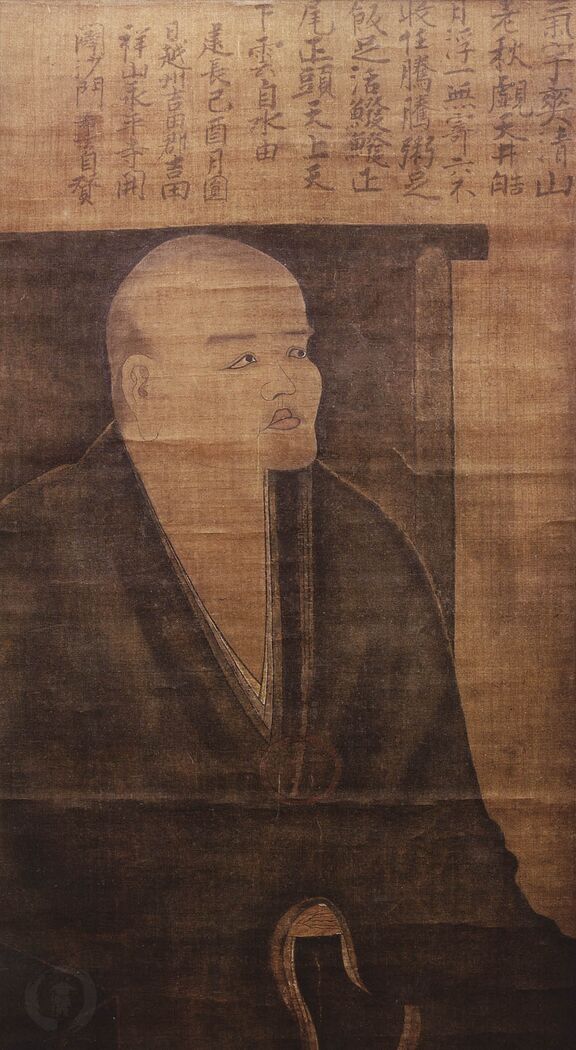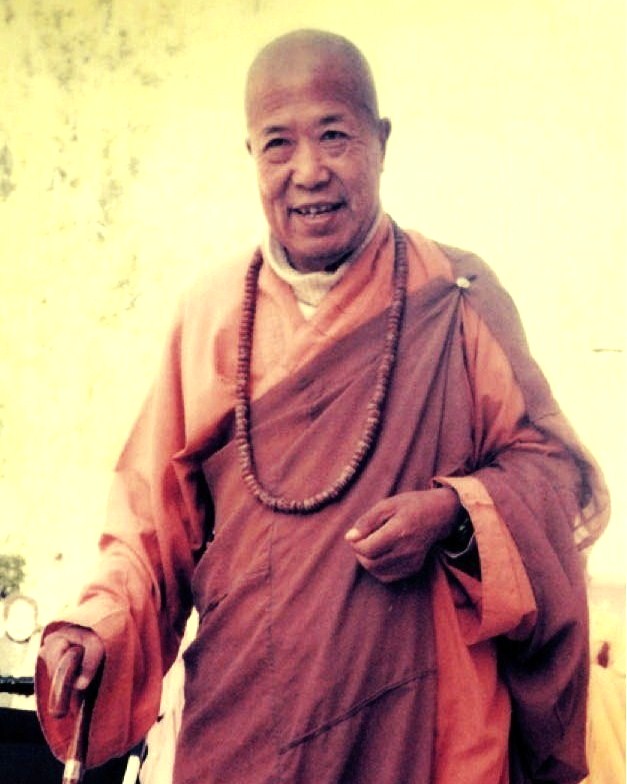|
Steven Heine
Steven Heine (born 1950), is a scholar in the field of Zen Buddhist history and thought, particularly the life and teachings of Zen Master Dōgen (1200–1253). He has also taught and published extensively on Japanese religion and society in worldwide perspectives. Teaching and research career Heine lectured at Villanova University in Religious Studies from 1982 to 1987. In 1987, he became an assistant professor of religion at La Salle University and taught there until 1991 when he moved to Penn State University and became an associate professor of Religious Studies. He left Penn State University in 1997 to work as director of Florida International University's Asian Studies Program. Since his arrival at FIU, Heine has expanded Asian Studies and helped facilitate its growth at both the undergraduate and graduate levels. The program also has an extensive outreach component. He is editor of the ''Japan Studies Review'' and a review editor for ''Philosophy East and West''. White C ... [...More Info...] [...Related Items...] OR: [Wikipedia] [Google] [Baidu] |
Dōgen
was a Japanese people, Japanese Zen Buddhism, Buddhist Bhikkhu, monk, writer, poet, philosopher, and founder of the Sōtō school of Zen in Japan. He is also known as Dōgen Kigen (), Eihei Dōgen (), Kōso Jōyō Daishi (), and Busshō Dentō Kokushi (). Originally ordained as a monk in the Tendai, Tendai School in Kyoto, he was ultimately dissatisfied with its teaching and traveled to China#Imperial China, China to seek out what he believed to be a more authentic Buddhism. He remained there for four years, finally training under Tiantong Rujing, Tiāntóng Rújìng, an eminent teacher of the Caodong, Cáodòng lineage of Chan Buddhism, Chinese Chan. Upon his return to Japan, he began promoting the practice of zazen (sitting meditation) through literary works such as ''Fukan zazengi, Fukanzazengi'' and ''Bendōwa''. He eventually broke relations completely with the powerful Tendai School, and, after several years of likely friction between himself and the establishment, left ... [...More Info...] [...Related Items...] OR: [Wikipedia] [Google] [Baidu] |
Zen In The United States
Zen was introduced in the United States at the end of the 19th century by Japanese teachers who went to America to serve groups of Japanese immigrants and become acquainted with the American culture. After World War II, interest from non-Asian Americans grew rapidly. This resulted in the commencement of an indigenous American Zen tradition which also influences the larger western (Zen) world. History Late 19th century – The Parliament of Religions In 1893, the Parliament of the World's Religions, World Parliament of Religions was held in Chicago. It was a landmark event for the introduction of Asian religions to a western audience. Although most of the delegates to the Parliament were Christians of various denominations, the Buddhist nations of China, Japan, Thailand, and Sri Lanka sent representatives. In the January 1844, issue of ''The Dial'' magazine, the publication of the Transcendentalism#The Transcendental Club, New England Transcendentalist Club, Henry David Thoreau ... [...More Info...] [...Related Items...] OR: [Wikipedia] [Google] [Baidu] |
Zen Buddhism Writers
Zen (; from Chinese: ''Chán''; in Korean: ''Sŏn'', and Vietnamese: ''Thiền'') is a Mahayana Buddhist tradition that developed in China during the Tang dynasty by blending Indian Mahayana Buddhism, particularly Yogacara and Madhyamaka philosophies, with Chinese Taoist thought, especially Neo-Daoist. Zen originated as the Chan School (禪宗, ''chánzōng'', 'meditation school') or the Buddha-mind school (佛心宗'', fóxīnzōng''), and later developed into various sub-schools and branches. Chan is traditionally believed to have been brought to China by the semi-legendary figure Bodhidharma, an Indian (or Central Asian) monk who is said to have introduced dhyana teachings to China. From China, Chán spread south to Vietnam and became Vietnamese Thiền, northeast to Korea to become Seon Buddhism, and east to Japan, becoming Japanese Zen. Zen emphasizes meditation practice, direct insight into one's own Buddha nature (見性, Ch. ''jiànxìng,'' Jp. ''kenshō''), and ... [...More Info...] [...Related Items...] OR: [Wikipedia] [Google] [Baidu] |
Writers From Miami
A writer is a person who uses written words in different writing styles, genres and techniques to communicate ideas, to inspire feelings and emotions, or to entertain. Writers may develop different forms of writing such as novels, short stories, monographs, travelogues, plays, screenplays, teleplays, songs, and essays as well as reports, educational material, and news articles that may be of interest to the general public. Writers' works are nowadays published across a wide range of media. Skilled writers who are able to use language to express ideas well, often contribute significantly to the cultural content of a society. The term "writer" is also used elsewhere in the arts and music, such as songwriter or a screenwriter, but also a stand-alone "writer" typically refers to the creation of written language. Some writers work from an oral tradition. Writers can produce material across a number of genres, fictional or non-fictional. Other writers use multiple media such a ... [...More Info...] [...Related Items...] OR: [Wikipedia] [Google] [Baidu] |
Florida International University Faculty
Florida ( ; ) is a state in the Southeastern region of the United States. It borders the Gulf of Mexico to the west, Alabama to the northwest, Georgia to the north, the Atlantic Ocean to the east, the Straits of Florida to the south, and The Bahamas to the southeast. About two-thirds of Florida occupies a peninsula between the Gulf of Mexico and the Atlantic Ocean. It has the longest coastline in the contiguous United States, spanning approximately , not including its many barrier islands. It is the only state that borders both the Gulf of Mexico and the Atlantic Ocean. With a population of over 23 million, it is the third-most populous state in the United States and ranks seventh in population density as of 2020. Florida spans , ranking 22nd in area among the states. The Miami metropolitan area, anchored by the cities of Miami, Fort Lauderdale, and West Palm Beach, is the state's largest metropolitan area, with a population of 6.138 million; the most populous city is Ja ... [...More Info...] [...Related Items...] OR: [Wikipedia] [Google] [Baidu] |
Villanova University Faculty
Villanova is a name of Latin origin, meaning ''new town''. It is equivalent to Italian Villanuova, French Villeneuve, Spanish Villanueva, and Catalan, Galician, Occitan and Portuguese Vilanova. It may refer to: Botany *''Villanova'', a genus of plants in the family Phyllanthaceae, an illegitimate name replaced by '' Flueggea'' (bushweed) * ''Villanova'' (plant), a genus of plants in the family Asteraceae Education *Villanova University, an American university established in 1842 in Pennsylvania, by the Augustinian Order (formerly known as Villanova College) **Villanova Wildcats, the athletic program of Villanova University *St. Thomas of Villanova College, an Augustinian university preparatory school in King City, Ontario, Canada *Villanova College (Australia), a current school run by the Augustinian priests, located in Coorparoo, in Brisbane, Queensland * Villanova Preparatory School, a college preparatory school in Ojai, California Geography and history *Villanova, Pennsylva ... [...More Info...] [...Related Items...] OR: [Wikipedia] [Google] [Baidu] |
American Buddhist Studies Scholars
American(s) may refer to: * American, something of, from, or related to the United States of America, commonly known as the "United States" or "America" ** Americans, citizens and nationals of the United States of America ** American ancestry, people who self-identify their ancestry as "American" ** American English, the set of varieties of the English language native to the United States ** Native Americans in the United States, indigenous peoples of the United States * American, something of, from, or related to the Americas, also known as "America" ** Indigenous peoples of the Americas * American (word), for analysis and history of the meanings in various contexts Organizations * American Airlines, U.S.-based airline headquartered in Fort Worth, Texas * American Athletic Conference, an American college athletic conference * American Recordings (record label), a record label that was previously known as Def American * American University, in Washington, D.C. Sports teams S ... [...More Info...] [...Related Items...] OR: [Wikipedia] [Google] [Baidu] |
Living People
Purpose: Because living persons may suffer personal harm from inappropriate information, we should watch their articles carefully. By adding an article to this category, it marks them with a notice about sources whenever someone tries to edit them, to remind them of WP:BLP (biographies of living persons) policy that these articles must maintain a neutral point of view, maintain factual accuracy, and be properly sourced. Recent changes to these articles are listed on Special:RecentChangesLinked/Living people. Organization: This category should not be sub-categorized. Entries are generally sorted by family name In many societies, a surname, family name, or last name is the mostly hereditary portion of one's personal name that indicates one's family. It is typically combined with a given name to form the full name of a person, although several give .... Maintenance: Individuals of advanced age (over 90), for whom there has been no new documentation in the last ten ... [...More Info...] [...Related Items...] OR: [Wikipedia] [Google] [Baidu] |
Year Of Birth Missing (living People)
A year is a unit of time based on how long it takes the Earth to orbit the Sun. In scientific use, the tropical year (approximately 365 solar days, 5 hours, 48 minutes, 45 seconds) and the sidereal year (about 20 minutes longer) are more exact. The modern calendar year, as reckoned according to the Gregorian calendar, approximates the tropical year by using a system of leap years. The term 'year' is also used to indicate other periods of roughly similar duration, such as the lunar year (a roughly 354-day cycle of twelve of the Moon's phasessee lunar calendar), as well as periods loosely associated with the calendar or astronomical year, such as the seasonal year, the fiscal year, the academic year, etc. Due to the Earth's axial tilt, the course of a year sees the passing of the seasons, marked by changes in weather, the hours of daylight, and, consequently, vegetation and soil fertility. In temperate and subpolar regions around the planet, four seasons a ... [...More Info...] [...Related Items...] OR: [Wikipedia] [Google] [Baidu] |
Management Education
Management (or managing) is the administration of organizations, whether businesses, nonprofit organizations, or a government bodies through business administration, nonprofit management, or the political science sub-field of public administration respectively. It is the process of managing the resources of businesses, governments, and other organizations. Larger organizations generally have three hierarchical levels of managers, organized in a pyramid structure: * Senior management roles include the board of directors and a chief executive officer (CEO) or a president of an organization. They set the strategic goals and policy of the organization and make decisions on how the overall organization will operate. Senior managers are generally executive-level professionals who provide direction to middle management. Compare governance. * Middle management roles include branch managers, regional managers, department managers, and section managers. They provide direction to fron ... [...More Info...] [...Related Items...] OR: [Wikipedia] [Google] [Baidu] |





